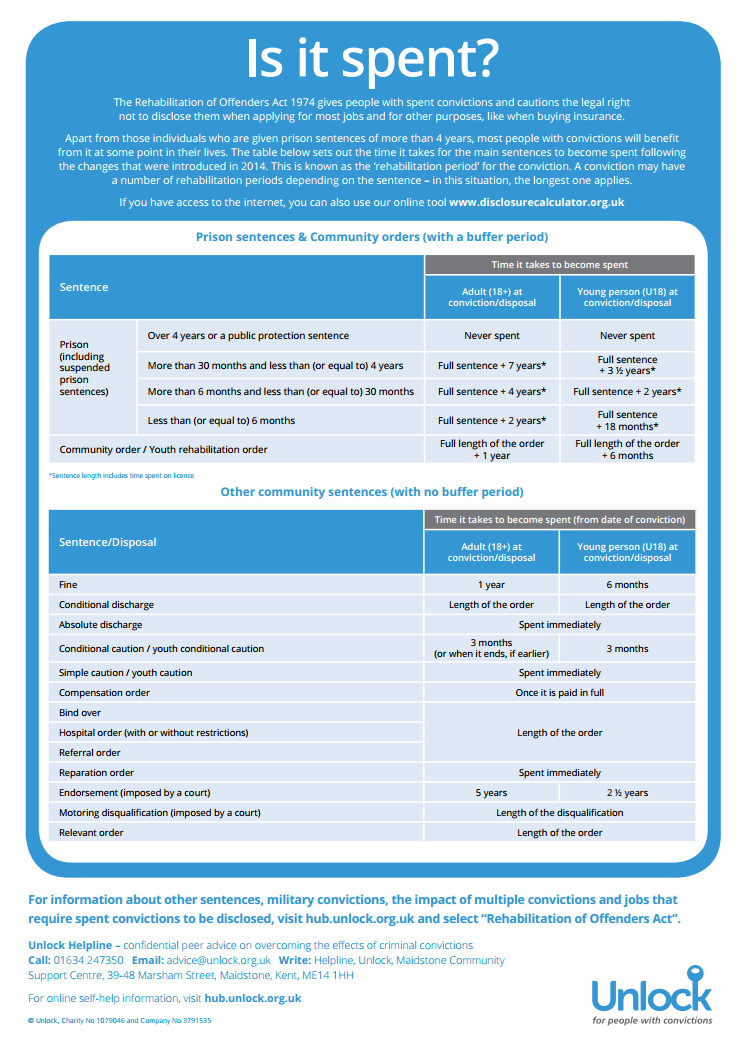- Contact us:
- 03300 535 600
- hello@staffone.co.uk
Equality ranks high on our agenda at Staff One. Although, for some, it is an often emotive topic, we believe that even people who have committed criminal offences have the right to find employment opportunities and to contribute to society. Knowing where you stand as an employer or as a candidate is incredibly important when it comes to the legislation that exists to protect and support employers and candidates alike.
Often, people have criminal offences and criminal records are unsure of their position in terms of making a declaration to their potential employer. Employers too are often unaware of the legalities behind their decision to or not to employ someone with a criminal history and most importantly, where they stand on asking someone about it.
It’s first important to understand that people who have committed a criminal offence are not a small minority, according to official figures 9.2 million people in the UK have criminal records. For this reason, as recruiters, it is important to understand that from time-to-time candidates we come across have criminal records, and what we should do when we establish this.
The Rehabilitation of Offenders Act (ROA) was passed in 1972 and came into being for a multitude of reasons, including to protect employers and also to protect employees and those seeking work. Employers have checks and balances that allow them to make sure that employees make appropriate disclosures and employees are protected because the ROA sets fixed periods of time which, once spent, mean that the conviction no longer needs to be declared. Since 1972 the act has had a number of revisions and amendments to make sure that it remains current and fair.
A conviction can be in one of two statuses; spent, meaning it can be effectively ignored after a specified amount of time. The amount of time for rehabilitation depends on the sentence imposed, not on the offence. Or, unspent, meaning that insufficient time has passed since the original offence without an individual re-offending and as such if asked during the process of applying for a job, would need to be declared.
The below table is an illustration of the period of rehabilitation as defined by the 2014 amendment to the ROA

please use the above as guidance only. Another really useful tool is the disclosure calculator available HERE which allows you to input the details of your conviction and it will tell you when it’s spent.
In many instances, a candidate having a criminal record might not be a reason to decline employment, either a) because their conviction would have no bearing on the job that they are doing b) because their conviction has been spent and they ultimately no longer need to declare it.
On the other hand, there are instances in which a conviction may have been spent, however the position being applied for is exempt of the ROA. These are in jobs where you may be working with young or vulnerable individuals.
We would encourage candidates with concerns to find out whether their potential employer has an ROA Policy. Likewise, we would encourage employers through good practice to have a policy of their own – a sample template can be found HERE
Useful information
- Unspent means that insufficient time has passed since the original offence without an individual re-offending; relevant unspent convictions have to be declared
- If asked, you have to declare the conviction for 3.5 years after your sentence ends if you were under 18 when convicted, or 7 years if 18 or over. You only have to tell if asked. If you have a prison sentence of over 4 years you currently always have to declare if asked as your conviction is never spent.
- ACAS Guidance
- An employer should only ask for a Disclosure and Barring Service (DBS) check on applicants who are successful. They are entitled to withdraw a job offer if the results of the check show the applicant is unsuitable or barred from working in regulated activity (if applicable).
- It is an offence for an employer to knowingly allow a barred person from engaging in regulated activity with the group with which they are barred from working (i.e. children or vulnerable groups, or both). It is also an offence for a barred person to seek work with the group with which they have been barred from working.






